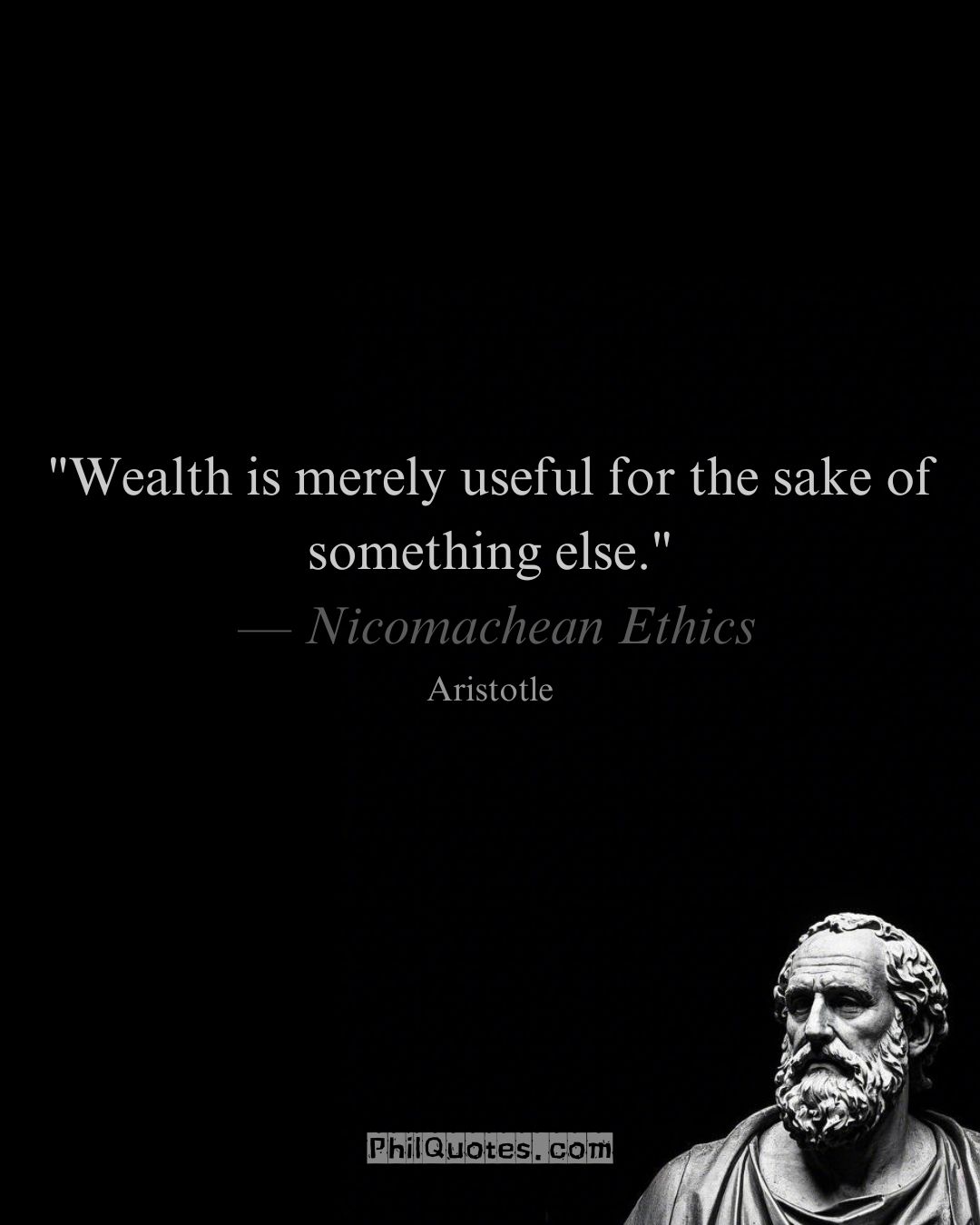
“Wealth is merely useful for the sake of something else.”
— Aristotle, Nicomachean Ethics, Book I, Chapter 5
Simple Explanation:
Aristotle dismisses wealth as an instrumental good — a tool to achieve higher ends (health, education, community), not a goal itself. Like a hammer’s value lies in building homes, wealth’s purpose is to enable virtuous living (eudaimonia), not endless accumulation.
Real-World Connection:
① Buying a Home Gym →
You spend savings (wealth) → build strength (physical good) → stay healthy for family duties (ethical good) → free time to mentor others (ultimate good).
② Corporate Sustainability Investment →
A CEO allocates profits (wealth) → upgrade eco-tech (immediate use) → reduce pollution (social good) → leave a livable planet for future generations (higher good).
③ The Hidden Paradox →
Wealth maximized for its own sake corrupts (greed); wealth orchestrated toward virtue (e.g., funding schools, curing diseases) becomes humanity’s “shared toolbox” for flourishing.